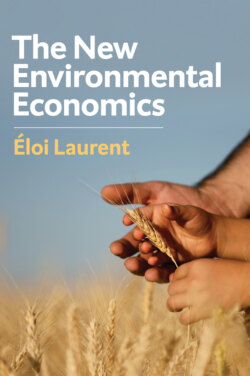Читать книгу The New Environmental Economics - Eloi Laurent - Страница 17
2 Humans within the biosphere: The paradox of domination and dependence
ОглавлениеOver the last two centuries, humans have become the dominant force of the biosphere and de facto stewards of the Earth’s ecosystems. But biospheric principle of interdependence and collaboration of species fully applies to humans: There is no economy outside of our habitat. Hence the paradox of domination and dependence that defines our geological time, the Anthropocene, as literally an age where humans rule the Earth.1
As I have already pointed out in the Introduction of this book, economics and ecology share common roots. Economics is etymologically more than two millennia older than ecology: Aristotle and Xenophon coined the phrase using oikos and nomos to refer to the rules of management of the household, what we would now call microeconomics. When the German biologist Ernst Hæckel coined the word “ecology,” he did so using the same radical, oikos but pairing it with logos or science.2 Economics and ecology are thus, at their roots, compatible, provided that one understands that the rules of the small human household cannot be imposed on the science of the great natural household. The general framework of this chapter (and this book) is not the relationship between humans and Nature but between humans and the rest of Nature. What’s fundamentally new in this relation is the fact that today, after billions of years of evolution, the natural world depends on us as much as we depend on it. In other words, our time is marked by an aberration: Apparently, the human household has come to dominate the natural household, a reality illustrated by the growing pressure the human population is putting on ecosystems (Box 2.1).
